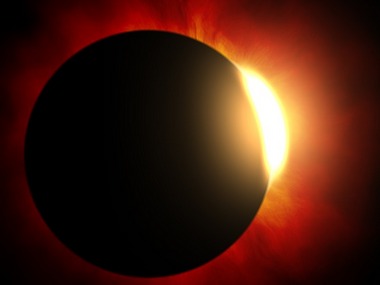NASA has said it is taking advantage of the 21 August total solar eclipse to better our understanding of Earth’s ionosphere, a very perplexing region which grows and shrinks based on solar conditions. [caption id=“attachment_3920299” align=“alignleft” width=“380”] Image Courtesy: Pixabay[/caption] The total solar eclipse will have some imperceptible effects, such as the sudden loss of extreme ultraviolet radiation from the Sun, which generates the ionised layer of Earth’s atmosphere, called the ionosphere. NASA is funding several ground-based science investigations across the US that will use the eclipse as a ready-made experiment, and three of these will look to the ionosphere in order to improve our understanding of the Sun’s relationship to this region, where satellites orbit and radio signals are reflected back toward the Earth. “The eclipse turns off the ionosphere’s source of high-energy radiation,” said Bob Marshall, a space scientist at University of Colorado Boulder and principal investigator for one of the studies. “Without ionising radiation, the ionosphere will relax, going from daytime conditions to nighttime conditions and then back again after the eclipse,” Marshall added. Stretching from roughly 50 to 400 miles above Earth’s surface, the tenuous ionosphere is an electrified layer of the atmosphere that reacts to changes from both the Earth below and space above. Such changes in the lower atmosphere or space weather can manifest as disruptions in the ionosphere that can interfere with communication and navigation signals. “In our lifetime, this is the best eclipse to see,” said Greg Earle, an electrical and computer engineer at Virginia Polytechnic Institute and State University in Blacksburg who is leading another of the studies. “But we’ve also got a denser network of satellites, GPS and radio traffic than ever before. It’s the first time we’ll have such a wealth of information to study the effects of this eclipse; we’ll be drowning in data,” Earle said. But pinning down ionospheric dynamics can be tricky. “Compared to visible light, the Sun’s extreme ultraviolet output is highly variable,” said Phil Erickson, principal investigator of a third study and space scientist at Massachusetts Institute of Technology’s Haystack Observatory in Westford, Massachusetts. “That creates variability in ionospheric weather. Because our planet has a strong magnetic field, charged particles are also affected along magnetic field lines all over the planet – all of this means the ionosphere is complicated,” Erickson said. But when totality hits on August 21, scientists will know exactly how much solar radiation is blocked, the area of land it is blocked over and for how long. Combined with measurements of the ionosphere during the eclipse, they will have information on both the solar input and corresponding ionosphere response, enabling them to study the mechanisms underlying ionospheric changes better than ever before. Ultimately, the scientists plan to use their data to improve models of ionospheric dynamics, NASA said. With these unprecedented data sets, they hope to better our understanding of this perplexing region.
NASA claims, the total solar eclipse will have some imperceptible effects, such as the sudden loss of extreme ultraviolet radiation from the Sun.
Advertisement
End of Article


)
)
)
)
)
)
)
)
)



